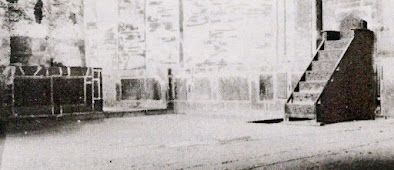“Muhammad having grown silent, Mírzá Muhammad-Ḥasan, who followed the
philosophical doctrine of Mullá Sadrá, questioned the Báb in order to induce
him to explain three miracles which it would suffice to relate in order to
enlighten the reader. The first one was the Tiyyu’l-Ard, or the immediate transfer
of a human being from one part of the world to another very distant point. The
Shiites are convinced that the third Imám, Javád, had adopted this easy and
economical way of traveling. For example, he betook himself, in the twinkling
of an eye, from Medina in Arabia to Tus in Khurásán.
“The second miracle was the multiple and simultaneous
presence of the same person in many different places. ‘Alí was, at the same
moment, host to sixty different people.
“The third miracle was a problem of cosmography which I
submit to our astronomers who will certainly relish it. It is said that, during
the reign of a tyrant, the heavens revolve rapidly, while during that of an
Imám they revolve slowly. First, how could the heavens have two movements and
then, what were they doing during the reign of the Umayyads and the Abbassids?
It was the solution of these insanities that they proposed to the Báb!
“I shall not dwell on them any longer but I believe I must
here make clear the mentality of the learned Moslems of Persia. And if one
should consider that, for nearly one thousand years, the science of Írán rests
upon such trash, that men exhaust themselves in continuous research upon such
matters, one will easily understand the emptiness and arrogance of all these
minds.
“Be that as it may, the reunion was interrupted by the
announcement of dinner of which each one partook, after which they returned to
their respective homes.”
- A. L. M. Nicolas ('Siyyid ‘Alí-Muḥammad dit le Báb,' pp.
239–240; footnotes to chapter 10 provided by Shoghi Effendi)







